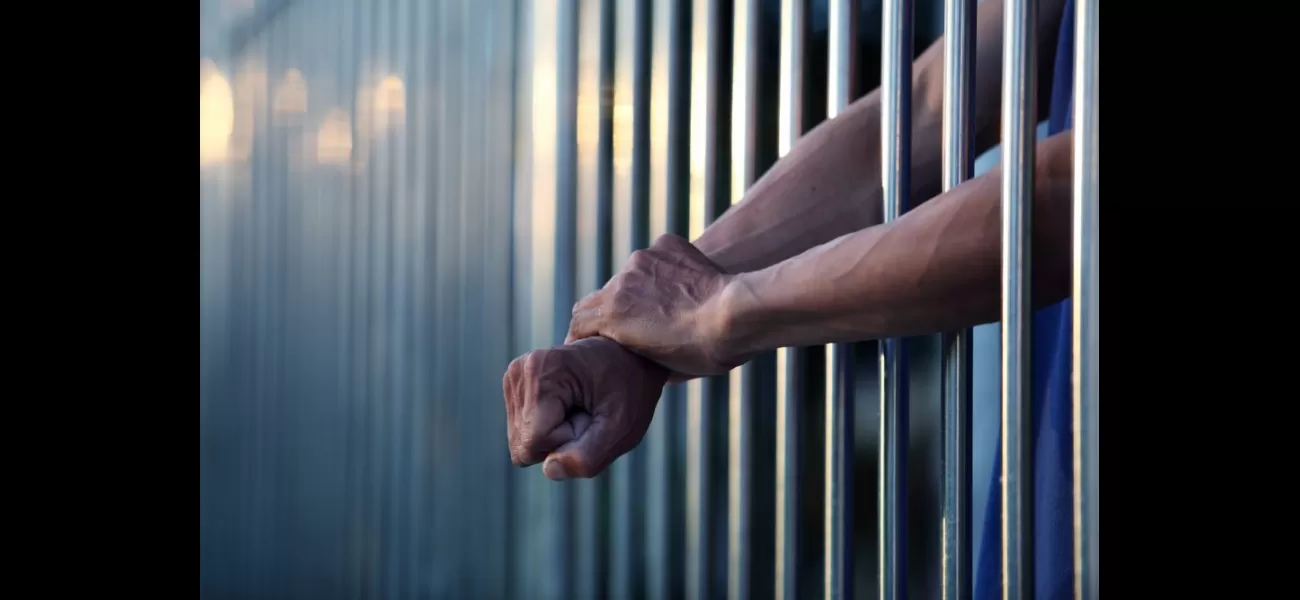Baltimore's new jail, costing $1 billion, will be the priciest project ever funded by the state.
New 884-bed facility will serve as both a jail and a treatment center for inmates with mental health and substance use issues.
March 22nd 2024.

The Maryland Department of Public Safety and Correctional Services is making progress on their plans for a new jail, which is expected to cost a staggering $1 billion. The facility, known as the Baltimore Therapeutic Treatment Center, will serve as a hybrid jail and offer hospital services, mental health treatment, and substance abuse treatment for incoming inmates. Estimated to be completed in 2029, the project will take five years to finish. However, concerns have been raised about the high operating costs, which are projected to exceed $100 million per year – a significant increase from the initial estimates.
Unfortunately, due to supply chain issues and inflation, this project has earned the title of "the most expensive state-run project in Maryland history." Additionally, there have been some setbacks with the plan. In 2016, civil rights groups filed a lawsuit against the state, alleging inadequate healthcare in Baltimore jails. Although a settlement was reached, the ongoing lawsuit claims that the state has failed to meet any of the nine provisions outlined in the agreement. Now, these same groups are questioning whether the new facility will face the same challenges, as they believe the state has not followed through on the terms of the settlement.
However, these groups are not blaming the physical limitations of the building for the state's shortcomings in medical and mental health care. Instead, they are concerned about the complexities of running a healthcare system in a jail, especially when the number of beds is being reduced from 1,462 to 854. David Fathi, Director of the ACLU's National Prison Project and a plaintiff in the health care lawsuit, has referred to Baltimore's jail system as a "train wreck of dysfunction." He believes that simply building a new facility will not solve all of the issues at hand.
The decision to downsize the number of beds in the new jail has already raised concerns. The current Baltimore jail system has a capacity of 959 beds, but it has been operating at a lower capacity for several months. Recent census numbers show a population of 800-900 people, which is around 92% full. In a report released in 2022, Fathi's National Prison Project described the jail as overcrowded, with inmates sleeping on plastic "boats" in the gymnasium. During a tour of the facility, his team also noted a lack of dedicated workspaces for nursing units and inadequate space for mental health treatment, which raises questions about who will be responsible for running the new facility.
As if these concerns were not enough, the state corrections department is also facing a staffing shortage, and their private medical provider is currently involved in a bankruptcy case, putting their reputation at risk. This has also brought attention to the number of in-custody deaths in Maryland detention centers. According to a study by The Washington Post, there were 180 deaths within the first ten days of incarceration. While some of these deaths were due to natural causes, there are questions surrounding whether others were caused by overlooked or ignored medical and mental health issues, or from injuries sustained while in custody.
Ultimately, the main issue of concern for all parties involved is the cost of the project. As lawmakers consider the governor's priorities, Senator Craig Zucker, chair of the General Assembly committee, has acknowledged the rising costs of the project. He stated that they are keeping a close eye on it and plan to submit a revised version of the statewide construction budget by the end of March 2024. The House of Delegates will also have a say in the matter.
Unfortunately, due to supply chain issues and inflation, this project has earned the title of "the most expensive state-run project in Maryland history." Additionally, there have been some setbacks with the plan. In 2016, civil rights groups filed a lawsuit against the state, alleging inadequate healthcare in Baltimore jails. Although a settlement was reached, the ongoing lawsuit claims that the state has failed to meet any of the nine provisions outlined in the agreement. Now, these same groups are questioning whether the new facility will face the same challenges, as they believe the state has not followed through on the terms of the settlement.
However, these groups are not blaming the physical limitations of the building for the state's shortcomings in medical and mental health care. Instead, they are concerned about the complexities of running a healthcare system in a jail, especially when the number of beds is being reduced from 1,462 to 854. David Fathi, Director of the ACLU's National Prison Project and a plaintiff in the health care lawsuit, has referred to Baltimore's jail system as a "train wreck of dysfunction." He believes that simply building a new facility will not solve all of the issues at hand.
The decision to downsize the number of beds in the new jail has already raised concerns. The current Baltimore jail system has a capacity of 959 beds, but it has been operating at a lower capacity for several months. Recent census numbers show a population of 800-900 people, which is around 92% full. In a report released in 2022, Fathi's National Prison Project described the jail as overcrowded, with inmates sleeping on plastic "boats" in the gymnasium. During a tour of the facility, his team also noted a lack of dedicated workspaces for nursing units and inadequate space for mental health treatment, which raises questions about who will be responsible for running the new facility.
As if these concerns were not enough, the state corrections department is also facing a staffing shortage, and their private medical provider is currently involved in a bankruptcy case, putting their reputation at risk. This has also brought attention to the number of in-custody deaths in Maryland detention centers. According to a study by The Washington Post, there were 180 deaths within the first ten days of incarceration. While some of these deaths were due to natural causes, there are questions surrounding whether others were caused by overlooked or ignored medical and mental health issues, or from injuries sustained while in custody.
Ultimately, the main issue of concern for all parties involved is the cost of the project. As lawmakers consider the governor's priorities, Senator Craig Zucker, chair of the General Assembly committee, has acknowledged the rising costs of the project. He stated that they are keeping a close eye on it and plan to submit a revised version of the statewide construction budget by the end of March 2024. The House of Delegates will also have a say in the matter.
[This article has been trending online recently and has been generated with AI. Your feed is customized.]
[Generative AI is experimental.]
0
0
Submit Comment





